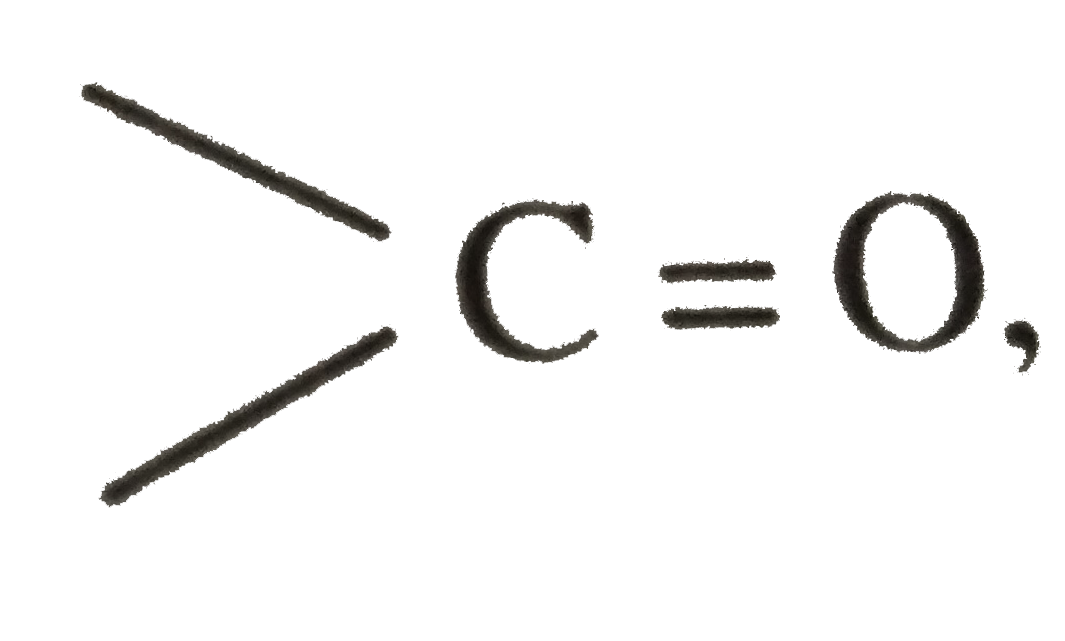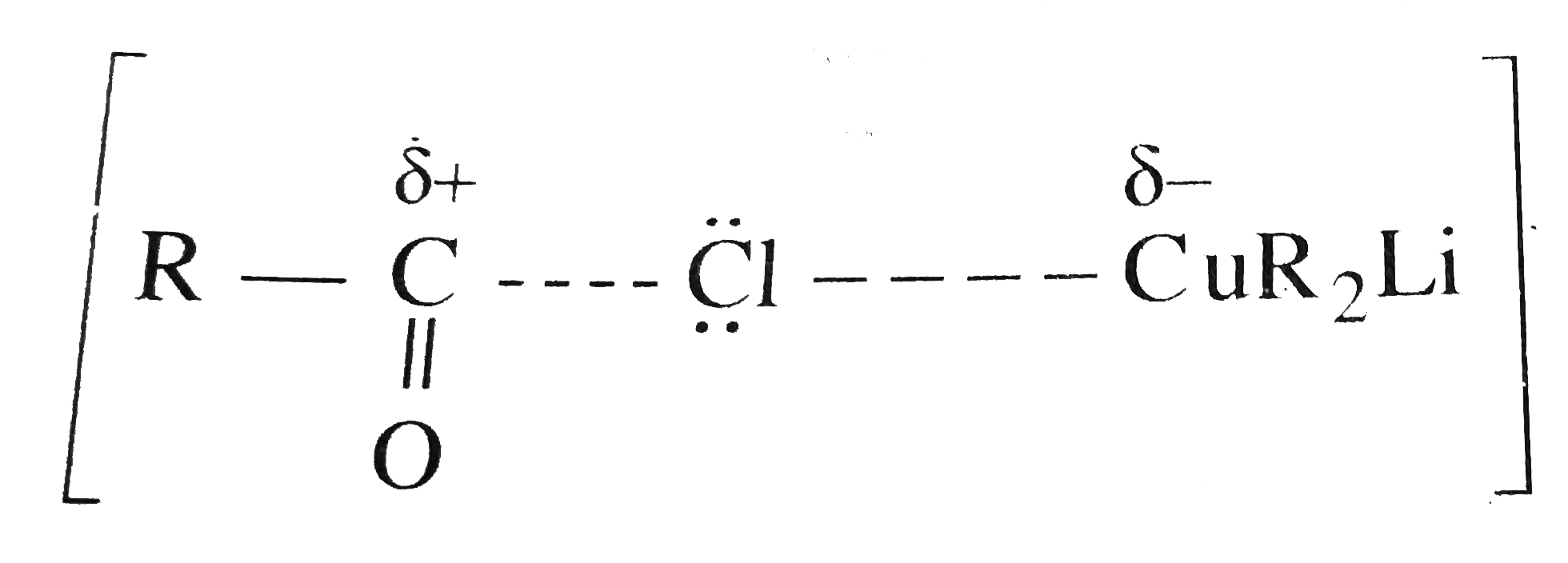Explain why organocopper and organocadmium reagents react with less reactive acid chlorides even though they do not reacts with more reactive ketones.
R2CuLi(and Ar2CuLi) and R2Cd and Ar2Cd do not react by the typical nucleophilic addition (NA) reaction of an  forming an acylium-like ion with greater +δ charge on the carbon. This strong electrophilic ion can form a bond even with the weak nucleophlic R of R2CuLi or R2Cd.
forming an acylium-like ion with greater +δ charge on the carbon. This strong electrophilic ion can form a bond even with the weak nucleophlic R of R2CuLi or R2Cd.
b 
Topper's Solved these Questions
- GRIGNARD REAGENTS AND ORGANOMETALLIC REAGENTSBOOK - CENGAGE CHEMISTRY ENGLISHCHAPTER - GRIGNARD REAGENTS AND ORGANOMETALLIC REAGENTSEXERCISE - Solved Examples
15 Videos
- GRIGNARD REAGENTS AND ORGANOMETALLIC REAGENTSBOOK - CENGAGE CHEMISTRY ENGLISHCHAPTER - GRIGNARD REAGENTS AND ORGANOMETALLIC REAGENTSEXERCISE - Exercises (Subjective )
17 Videos
- GENERAL PRINCIPLES AND PROCESS OF ISOLATION OF ELEMENTSBOOK - CENGAGE CHEMISTRY ENGLISHCHAPTER - GENERAL PRINCIPLES AND PROCESS OF ISOLATION OF ELEMENTSEXERCISE - Archives (Subjective)
14 Videos
- NCERT BASED EXERCISEBOOK - CENGAGE CHEMISTRY ENGLISHCHAPTER - NCERT BASED EXERCISEEXERCISE - Nuclear Chemistry (NCERT Exercise)
29 Videos
Similar Questions
Explain why:
Interhalogen compounds are more reactive than the related elemental halogens.
View SolutionWhich gas is produced when less reactive metals like Mg and Fe react with steam?
View SolutionWhy tertiary amines do not react with acid chlorides and acid anhydrides?
View SolutionAssertion: Both grignard reagent and dialkyl cadmium react with acid chlorides to form tert-alcohols.
Reason: Grignard reagents are as reactive as dialkyl cadmium.
View SolutionWhy is Grignard reagent not successful in the preparation of ketones from acid chlorides?
View SolutionExplain why interhalogen compounds are more reactive than their constituent elements.
View SolutionExplain, why is sodium less reactive than potassium ?
View SolutionStatement-I: Ketones are less reactive than aldehydes.
Because
Statement-II: Ketones do not give Schiff's test.
View SolutionExplain as to why haloarenes are much less reactive than halo-alkanes towards nucleophilic substitution reactions.
View SolutionZinc liberates hydrogen gas when reacted with dilute hydrochloric acid, whereas copper does not. Explain, why?
View Solution
